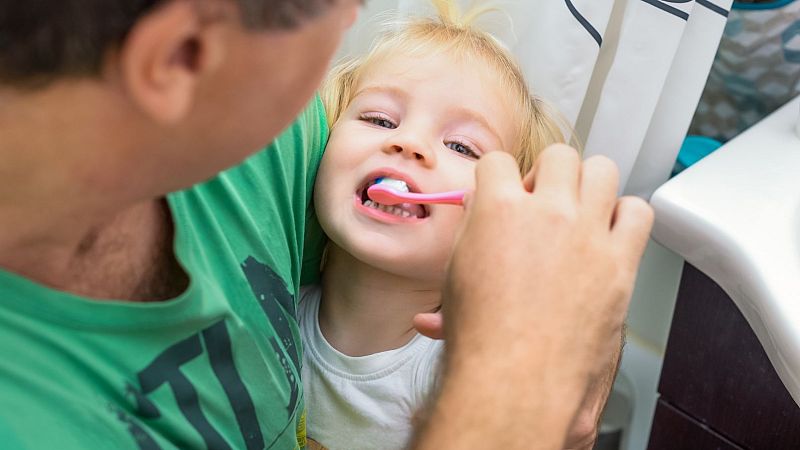
Food safety officials have lowered the safe limit of fluoride in drinking water, though they say there is no evidence of serious health harms at levels commonly found in the European Union.
Fluoride is a naturally occurring mineral that can help prevent tooth decay. Only a handful of EU countries, including Ireland and parts of Spain, add fluoride to drinking water, but it can be found in about 90 per cent of toothpastes.
The World Health Organization (WHO) recommends that countries set a maximum fluoride limit at 1.5 milligrams per litre (mg/L) – the EU’s legal limit – because higher levels can cause bone and teeth problems, particularly in children.
But more recent studies have found that even below that level, fluoride intake may be linked to lower IQ in children.
The European Food Safety Authority (EFSA) reassessed the possible risks from fluoride because of those concerns.
The agency screened more than 20,000 scientific papers on fluoride’s effect on the developing brain, thyroid, bones, and teeth, tracking people’s exposure to fluoride in drinking water, food, fluoridated table salt, and toothpaste and other dental care products, when they are eaten or ingested.
In the EU, fluoride in drinking water is usually under 0.3 mg/L, which is a safe level, EFSA said.
“We estimated that, in general, with the current concentrations of fluoride in European drinking water, total fluoride exposure … does not pose a health concern,” Susanne Hougaard Bennekou, a toxicologist and chair of EFSA’s scientific committee, said in a press release.
There was one exception among children ages four to eight – though the potential effects were not exactly severe. If these children regularly swallow their toothpaste, they could experience mild tooth discolouration, particularly in their developing molars.
“This is unlikely to occur if children spit the toothpaste out properly after brushing their teeth,” Bennekou said.
New safety thresholds
Because of this risk, EFSA set a new safe fluoride intake level at 1 milligram per day (mg/day) for babies under the age of one, 1.6 mg/day for toddlers aged one to three, and 2 mg/day for those aged four to eight.
The agency said the safe limit for adults and children older than eight is 3.3 mg per day. For pregnant women, this limit would protect their developing babies against toxicity in the brain, as well as any risks of thyroid and bone problems.
The new thresholds are part of a consumer risk assessment, but they could prompt a change in the EU’s legal limits on fluoride in drinking water.
EFSA officials said it is still not entirely clear whether fluoride poses a health threat at levels below 1.5mg/L, and called for more research on the issue.
“There is evidence that we can’t ignore linking fluoride to possible effects on the developing nervous system of the foetus,” Thorhallur Halldorsson, a food science researcher and chair of EFSA’s working group on fluoride, said in a statement.
“But the evidence is not sufficient to set a threshold”.







